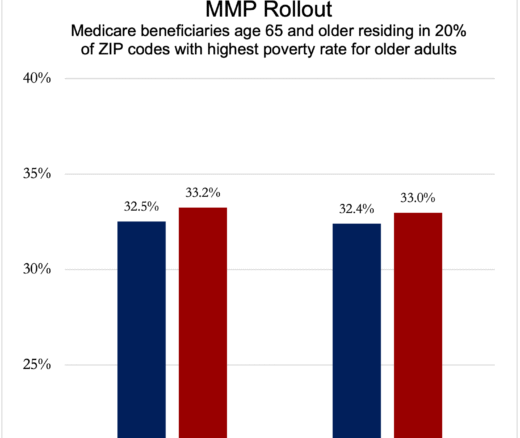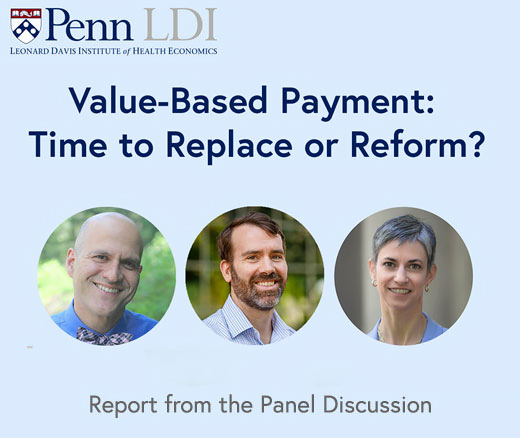
When Medicare Sent Patients Home Sooner, Mary Naylor Built the Safety Net
Her Transitional Care Model Shows How Nurse-Led Care Can Keep Older Adults Out of the Hospital and Change Care Worldwide
Blog Post
Work requirements in the Medicaid program are a consistently controversial issue. But even as the legality of the policies has been challenged in recent years, research has shown the public generally supports work requirements.
Now, a new study by Kristen Underhill of Cornell School of Law, LDI Senior Fellows Atheendar Venkataramani, Kevin Volpp, Kristin Linn, and other Penn researchers presents a more nuanced look at this public support. When the research team probed public views, they found that despite agreeing generally that work should be mandated, respondents often opposed central elements of the policy such as terminating benefits due to noncompliance.
Underhill, Venkatarmani, and colleagues surveyed 1,203 Kentucky residents—41% of whom were enrolled in Medicaid—about their views of the work requirement policy as well as the requirement to pay premiums. They focused on Kentucky given the state’s central importance in Medicaid work requirement debates in the last decade, marked by their initially approved and later rescinded Medicaid Section 1115 waiver to introduce work requirements in their Medicaid program. The survey participants reported top-level support for work requirements, with 69% agreeing that “if people are able, they should be required to spend time volunteering or working to stay on Medicaid.” This finding is similar to findings from some prior studies.
But beneath that support, the investigators identified opposition to specific program elements, including terminating enrollment for failing to comply with work requirements and obliging recipients to work at least 20 hours a week. Only 43% of participants agreed that people with unmet hours “should lose their Medicaid benefits.” Most respondents also rejected monthly Medicaid premiums.
The study reported overall responses and also broke out responses based on different factors including political affiliation and Medicaid enrollment status. The gap between overall support for the policy and opposition to the underlying details persisted across all groups as shown in the chart.

Work requirements generally have been shown to reduce the Medicaid rolls without increasing engagement in the workforce. Nevertheless, during the Trump administration, 13 states applied for and received a waiver from the Centers for Medicare & Medicaid Services (CMS) that allowed them to impose work and reporting requirements as a condition of Medicaid eligibility. Several of these waivers then were struck down in federal courts, which found CMS had failed to consider the impact on those losing coverage, and the Biden administration rescinded others. In 2023, only Georgia continues to enforce work requirements.
Work requirement proposals continue to be part of federal policy-making discussions. The Limit, Save, Grow Act of 2023 passed by the House of Representatives as part of the debt ceiling negotiations would have allowed states to disenroll adult beneficiaries who failed to meet minimum work requirements. While that legislative vehicle does not persist, proposals to attach work requirement proposals to Medicaid are likely to be a recurrent feature of the policy landscape.
“Describing Medicaid policies at a high level of generality may mask program features that, if enacted, would receive sharp opposition,” the authors wrote.
While some politicians continue to support strict work requirements, the findings from Underhill, Venkatarmani, and colleagues indicate that public support may not extend to requiring disenrollment for noncompliance. Moreover, the public may prefer enforcement mechanisms that do not affect benefits eligibility.
The study, “Public Views on Medicaid Work Requirements and Mandatory Premiums in Kentucky,” was published November 15, 2023 in JAMA Health Forum. Authors include Kristen Underhill, Elizabeth F. Bair, Erica L. Dixon, William J. Ferrell, Kristin A. Linn, Kevin G. Volpp, and Atheendar S. Venkataramani.


Her Transitional Care Model Shows How Nurse-Led Care Can Keep Older Adults Out of the Hospital and Change Care Worldwide

Chart of the Day: Medicare-Medicaid Plans—Created to Streamline Care for Dually Eligible Individuals—Failed to Increase Medicaid Participation in High-Poverty Communities

Penn LDI Debates the Pros and Cons of Payment Reform

Direct-to-Consumer Alzheimer’s Tests Risk False Positives, Privacy Breaches, and Discrimination, LDI Fellow Warns, While Lacking Strong Accuracy and Much More

One of the Authors, Penn’s Kevin B. Johnson, Explains the Principles It Sets Out

Six Lessons the U.S. Can Learn from Europe About Protecting Health Data Linkages